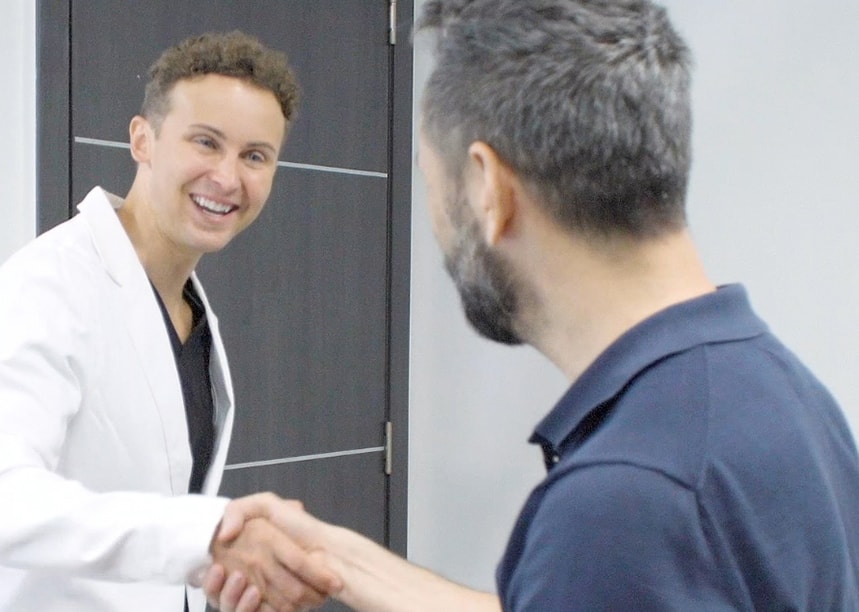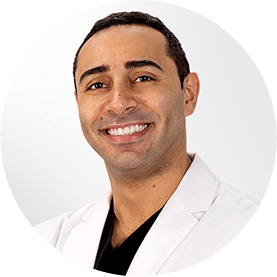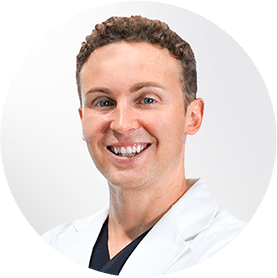Back Pain Doc in Hackensack Reveals the Most Common Causes of Upper Back Pain
July 31, 2021
The upper back is the region that starts right under your neck and ends just below the ribcage. In total, there are twelve spinal bones that make up the upper back area, which, in the medical world, is called the thoracic spine. Upper back pain can be experienced anywhere in this area and can lead to significant discomfort.
The upper back is much stronger than the cervical region and the lumbar region of the spine, which means it is usually more resistant to injury and pain. When discomfort does install, it usually happens due to poor posture, an injury, or muscle overuse.

In many cases, patients report acute episodes of upper back pain, which usually goes away with minimal care, rest, gentle exercise, and painkillers. However, chronic pain that lasts for more than a few weeks usually signals an underlying condition. Below, Dr Laura Lombardi, a board-certified back pain doc in Hackensack will explain to us the most common reasons patients experience upper back pain, as well as what you can do to get back to your pain-free life.
1. Poor posture
Just as periodic workouts can train your muscles to be stronger, certain habits can lead to muscle deconditioning. We have something called muscle memory, which means if we use our muscles a certain way for a period of time, they will remember it and regard it as “correct”. Muscle deconditioning basically means teaching our muscles bad habits that become normal.

Poor posture is one of the main causes of muscle deconditioning, especially for people working at a desk all day. Additional pressure is exerted on the spinal bones, discs, muscles, and other soft tissues when the head and shoulders slouch forward. If a person leans towards one side more frequently, such as when driving or working at a desk, this can result in an imbalance in the upper back, and it can also lead to muscular weakness. Muscle weakness can cause discomfort in the area as the muscles become strained or irritated over time.
In most situations, you can condition the muscles to become stronger and more durable. This procedure begins with improving one’s sitting posture and taking regular breaks from one’s workstation to move and stretch. Alternating between a sitting and a standing desk may also be useful in this situation.
2. Muscle exhaustion
Another common cause of upper back discomfort is the overuse of back muscles. This is usually caused by repeating the same actions over and over again. The pain may occur due to muscle strains, tightness, or irritation.
Baseball pitchers, for example, are often at risk of developing upper back pain as a result of muscle exhaustion. They need to perform repetitive movements when they pitch, which often affects the shoulder and upper back area. Sometimes the discomfort can be accompanied by neck pain as well.
A person who has to perform the same action all day or who lifts objects over their heads, for example, may develop muscular discomfort, stiffness, or strains. If people disregard these warning signs, it might lead to chronic discomfort.
Resting the painful area and using heat or cold packs to improve blood circulation to the muscles are common treatments for muscle exhaustion. Dr Laura Lombardi advises that it may be beneficial to minimize repetitive movements or to take rests between tasks until the pain disappears.
3. Trauma due to injury
Injuries, even seemingly minor ones, can lead to trauma if left unattended. Most commonly, these injuries happen due to car accidents, work-related incidents, improper lifting, extensive workout routines, and slip and fall accidents.
Sometimes the injury is easy to notice, and pain occurs shortly after the incident. At times, however, the discomfort may not appear until later in the day or the next day. Traumatic injuries can be serious, leading to issues such as broken vertebrae, which put a person at risk of long-term consequences, including persistent pain and nerve damage.
Because proper healing is critical to avoiding long-term discomfort, you should visit a pain doctor for a proper post-accident examination as soon as possible. In some cases, the doctor may send the patient to a physical therapist to assist in the correct healing of muscle damage. Serious injuries may require the help of spine surgeons.
4. A herniated disc
While herniated disks are more likely to occur in the lower back, they can sometimes happen in the upper back as well. Put simply, discs are soft cushions that exist between each of your vertebrae. Their role is to ensure the vertebrae don’t rub against each other and deteriorate. When one of these cushions tears, it results in a herniated disc, which puts pressure on the spine. Even minor pressure can cause severe pain in the center of the back, as well as accompanying symptoms such as numbness or tingling in the arms or legs. The good news is the majority of individuals do not require surgery for herniated discs and can heal with rest, anti-inflammatory medication, and minimally-invasive treatments.
5. A pinched nerve
In some cases, a herniated disc can protrude far enough to crush a neighbouring nerve. A pinched nerve in the upper back might result in pain, often accompanied by weakness, numbness, and pain in the hands or legs (depending on where the nerve is located).
If the pinched nerve is caused by a herniated disc, the treatment will focus on minimizing pain and treating the source of the problem – the herniated disc. In most situations, a pinched nerve does not require surgery. However, doctors may suggest spinal steroid injections or nerve blocks in some cases.
If back pain is giving you trouble, it may be time to seek medical advice. At Pain Treatment Specialists, our Harvard Medical School-trained pain management specialists and orthopaedic surgeons are ready to help you find the best pain management options to relieve discomfort once and for all. Book an appointment with one of our back pain docs in New Jersey, in Paramus on Route 17, near the Paramus Park Mall, in Clifton, NJ, on Route 46 E, past the Ford dealership, in West Orange, near the Essex Country Club, and in Woodland Park clinic, on McBride Avenue, right next to Woodland Park Dialysis Center.
Book a Consultation
Scheduling a consultation with one of our pain treatment specialists is one of the best ways to determine the proper solution for pain relief.
Meet Our Team of Back Pain Specialists
All of our Pain Doctors in New Jersey are Harvard Trained and Board Certified in Pain Management

Back Pain Doctor Clifton & West Orange NJ
Dr. George Hanna
Dr. Hanna is a Harvard Trained back specialist in New Jersey and New York. He serves as Medical Director of Pain Management.

Back Pain Doctor Clifton & West Orange NJ
Dr. Laura Lombardi
Dr. Lombardi is a Harvard Trained back pain treatment doctor, currently seeing patients in Clifton and West Orange, New Jersey.

Back Pain Doctor Clifton & West Orange NJ
Dr. Shane Volney
Dr. Volney is a Harvard Trained back treatment doctor seeing patients in the NJ areas of Clifton & West Orange, and in NYC.

Back Pain Doctor Clifton & West Orange NJ
Dr. Michael Nguyen
Dr. Nguyen is Harvard Trained and Board Certified in Pain Management. His pain center accepts major medical insurances and Medicare.

Dr. George Hanna

Dr. Laura Lombardi
Dr. Lombardi is a Harvard Trained back pain treatment doctor, currently seeing patients in Clifton and West Orange, and Paramus New Jersey.

Dr. Shane Volney
Dr. Volney is a Harvard Trained back treatment doctor seeing patients in the NJ areas of Clifton & West Orange, and in NYC.

Dr. Michael Nguyen
Dr. Nguyen is Harvard Trained and Board Certified in Pain Management. His pain center accepts major medical insurances and Medicare.
